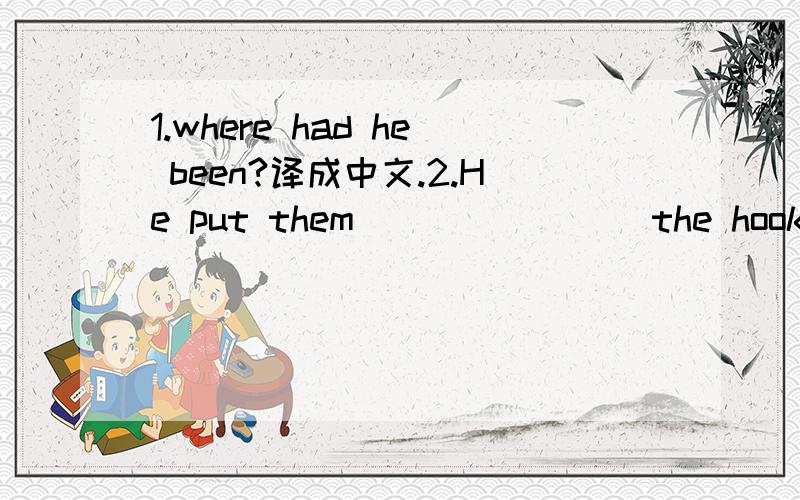1.where had he been?译成中文.2.He put them _______ the hook on the wall.A.on B.in C.with D.into3.Could you tell us something about Beijing?为什么不用anything ,而要用anything,
来源:学生作业帮助网 编辑:作业帮 时间:2024/11/06 08:13:01

1.where had he been?译成中文.2.He put them _______ the hook on the wall.A.on B.in C.with D.into3.Could you tell us something about Beijing?为什么不用anything ,而要用anything,
1.where had he been?译成中文.
2.He put them _______ the hook on the wall.
A.on B.in C.with D.into
3.Could you tell us something about Beijing?为什么不用anything ,而要用anything,
1.where had he been?译成中文.2.He put them _______ the hook on the wall.A.on B.in C.with D.into3.Could you tell us something about Beijing?为什么不用anything ,而要用anything,
1.where had he been?他去哪儿啦?.
2.He put them _on_ the hook on the wall.
A.on
3.Could you tell us something about Beijing?
something=一些事
anything=任何事
如果是anything 翻译过来就是:
你可以告诉我任何事关于北京吗?
所以应该是something
他到过哪里?b anthing 指的是一切事情。而句子是一些事
1.他去过哪儿?
2.A
3.如果用anything就是“关于北京的所有内容吗?”明显不通。
1. where had he been? (他去过哪里?)
2.He put them (A.on ) the hook on the wall.
如:The pictures on the walls (抢上的那些画。)
3.Could you tell us something about Beijing?
这是固定而且常用的,如:could you tell...
全部展开
1. where had he been? (他去过哪里?)
2.He put them (A.on ) the hook on the wall.
如:The pictures on the walls (抢上的那些画。)
3.Could you tell us something about Beijing?
这是固定而且常用的,如:could you tell me something
about you ?
这是问关于某个东西或者事物或者人的一些情况
只是想做一些了解
如果是用 anthing 则是 询问所有的信息
显然不合语境
收起